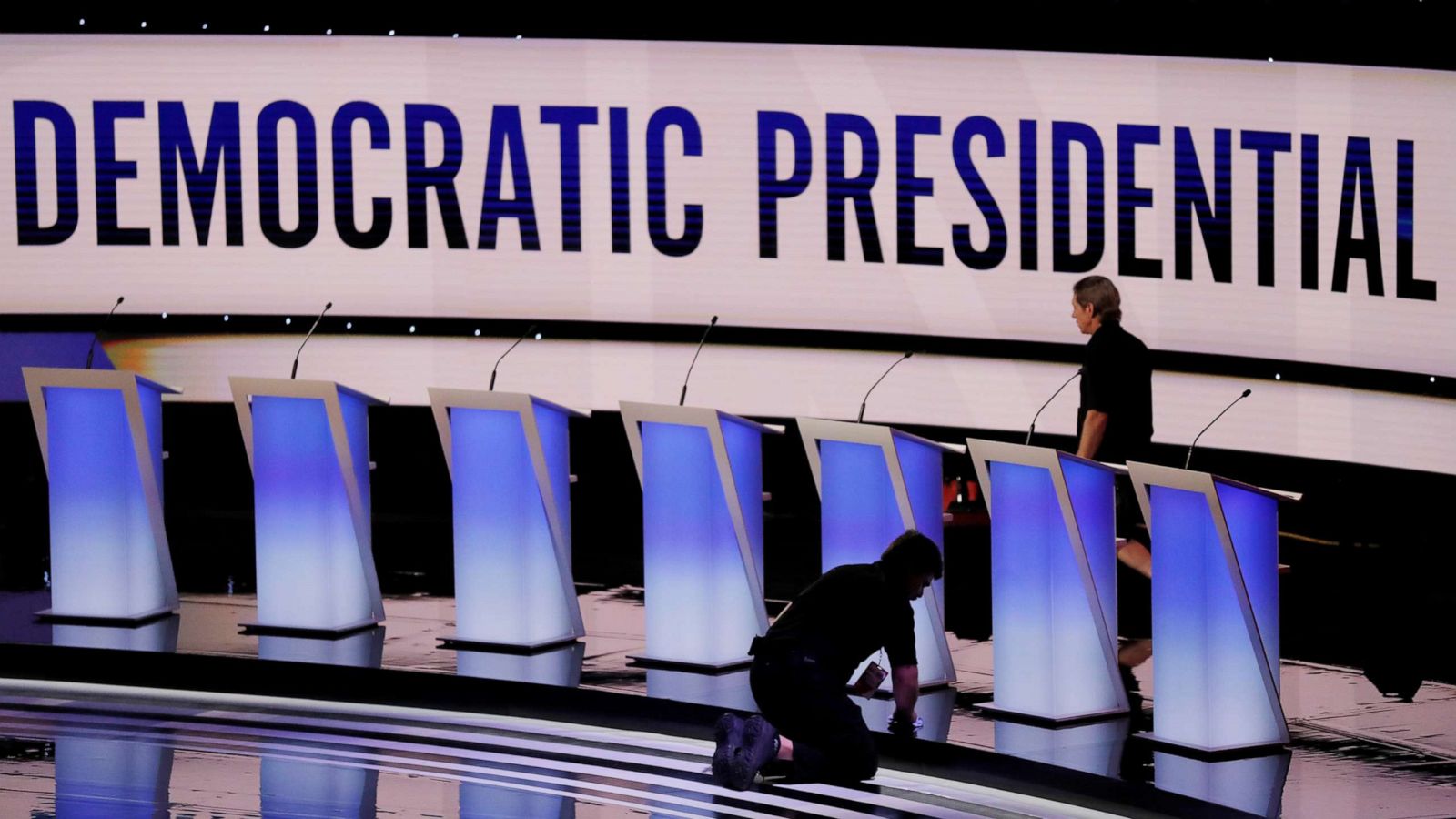We now know firmly that the third Democratic debate, coming up on Sept. 12, hosted by ABC, will be held to just one night and feature only 10 qualifying candidates. The repercussions for tightening the qualifications and creating a single night event will mean that former vice president Joe Biden will face a stage full of his top competitors, including Sen. Elizabeth Warren and Sen. Bernie Sanders. For the first two debates, with the large field of candidate split over two nights, not all of the biggest names appeared on stage at the same time.
For all intents and purposes, the entire Democratic field has been culled to only candidates polling above 2% support standing on the debate stage. There’s a still a lot of baggage in the field, and it’s arguable that the earlier debates should’ve been limited to 10 candidates, but this is the process created by the Democratic National Committee (DNC) to deal with criticism from the 2016 process.
ABC News Democratic Primary Debate
Air Date: Thursday, September 12, 2019
Time: 8 pm ET (7 pm CT, 6 pm MT, 5 pm PT)
Aired On: ABC, Univision, ABCNews.com
Location: Texas Southern University in Houston, Texas
Moderators: George Stephanopoulos, David Muir, Linsey Davis, and Jorge Ramos
The debate live stream will be available on the ABCNews.com website and apps, as well as Hulu Live, The Roku Channel, Facebook Watch, Apple TV, Amazon Fire TV, YouTube, Apple News, and Twitter.
Confirmed debate candidates
1. Former Vice President Joseph R. Biden Jr.
2. Senator Cory Booker of New Jersey
3. Mayor Pete Buttigieg of South Bend, Ind.
4. Senator Kamala Harris of California
5. Former Representative Beto O’Rourke of Texas
6. Senator Bernie Sanders of Vermont
7. Senator Elizabeth Warren of Massachusetts
8. Senator Amy Klobuchar of Minnesota
9. Businessman Andrew Yang
10. Former HUD Secretary Julian Castro
Biden will be sandwiched center-stage between Sen. Bernie Sanders and Sen. Elizabeth Warren, and a slew of other more progressive candidates. In fact, the only candidate aside from Biden carrying a more moderate message is Sen. Amy Klobuchar of Minnesota. Rep. Tulsi Gabbard, whose performance knocked Sen. Kamala Harris back a few pegs at the second debate, didn’t make the cut and will be watching from home next month.
Debate format similar to CNN
ABC has released the way they will keep the pace moving which seems to be a similar format to that used by CNN back in July.
Candidates will have one minute and 15 seconds for direct response to questions from the moderators and 45 seconds to respond to follow-up questions and rebuttals. However, there was no explicit word on whether candidates would be buzzed for time or have their future time curtailed if they choose to interrupt or go outside of their allotted time as was the case on CNN.
CNN moderators took some criticism in July for the way they cut off candidates in mid-sentence and generally treated the event as more of a “soundbite” contest since candidates had such little time to answer. ABC will be looking to provide a better balance but still give the large debate stage time to speak.
October debate could expand beyond 10 candidates
For some entirely inexplicable reason, the DNC has decided that the deadline for candidates to qualify for the fourth Democratic debate, happening in October, will extend beyond the September debate and could mean that the field will once again expand.
It’s entirely possible that Tulsi Gabbard or Tom Steyer could get a good poll between now and the October deadline which would punch their ticket to the fourth debate. Details for the October debate, such as a specific date, polling deadline, and host have not yet been announced.
The September debate should prove to be filled with fireworks, but the October debate, where many of the candidates will be in a do-or-die mindset, will likely be more crucial after the dust settles.
Donate Now to Support Election Central
- Help defend independent journalism
- Directly support this website and our efforts
